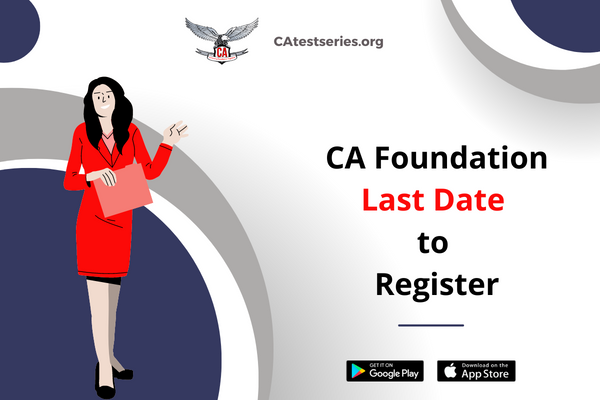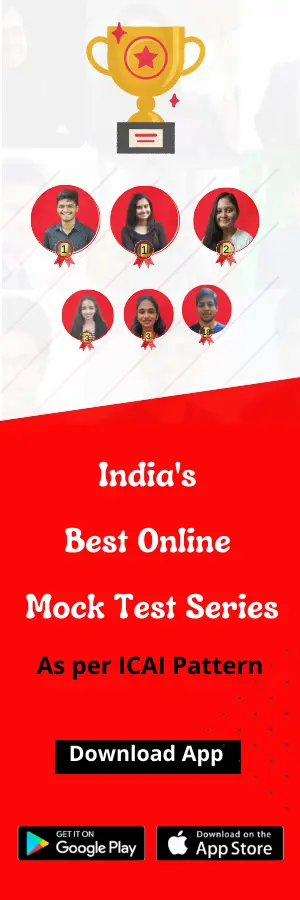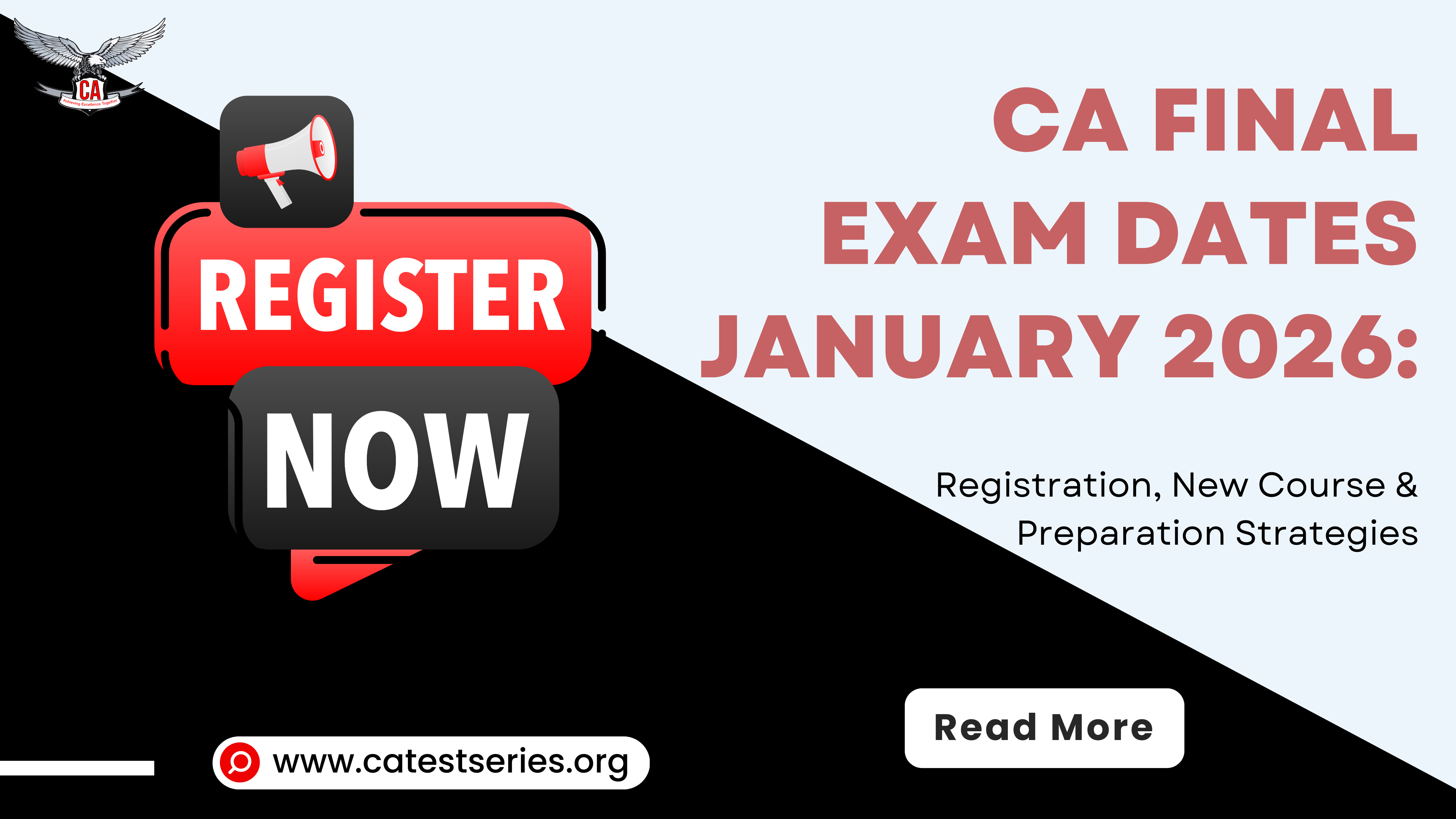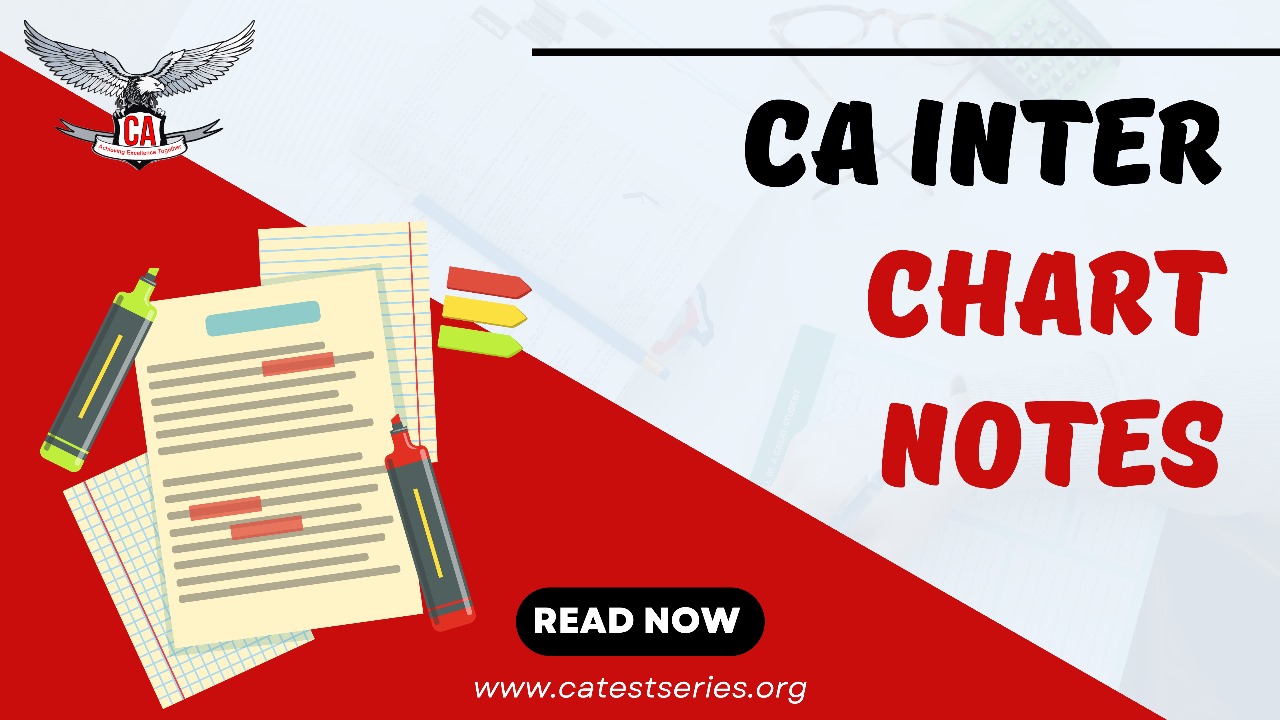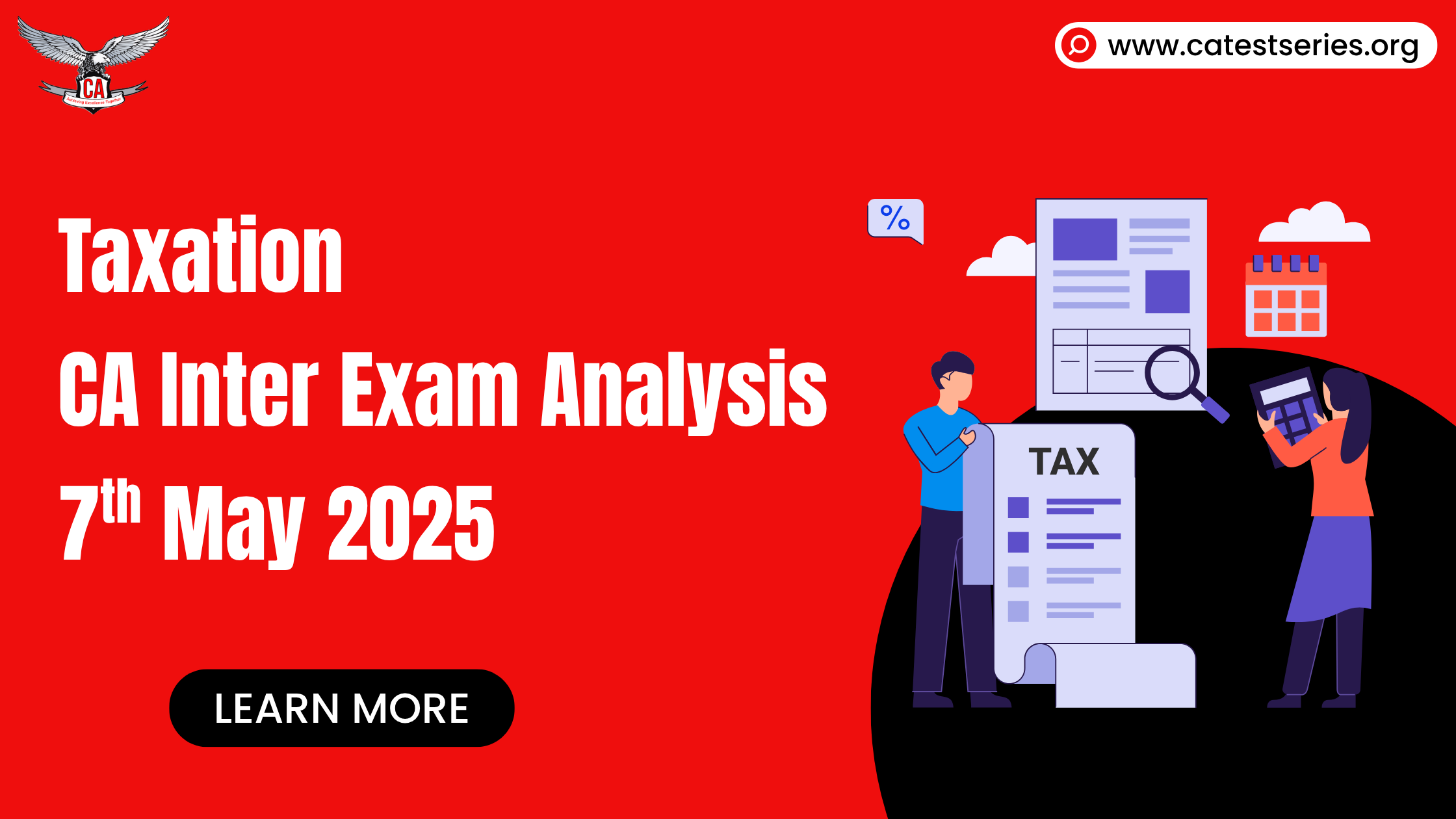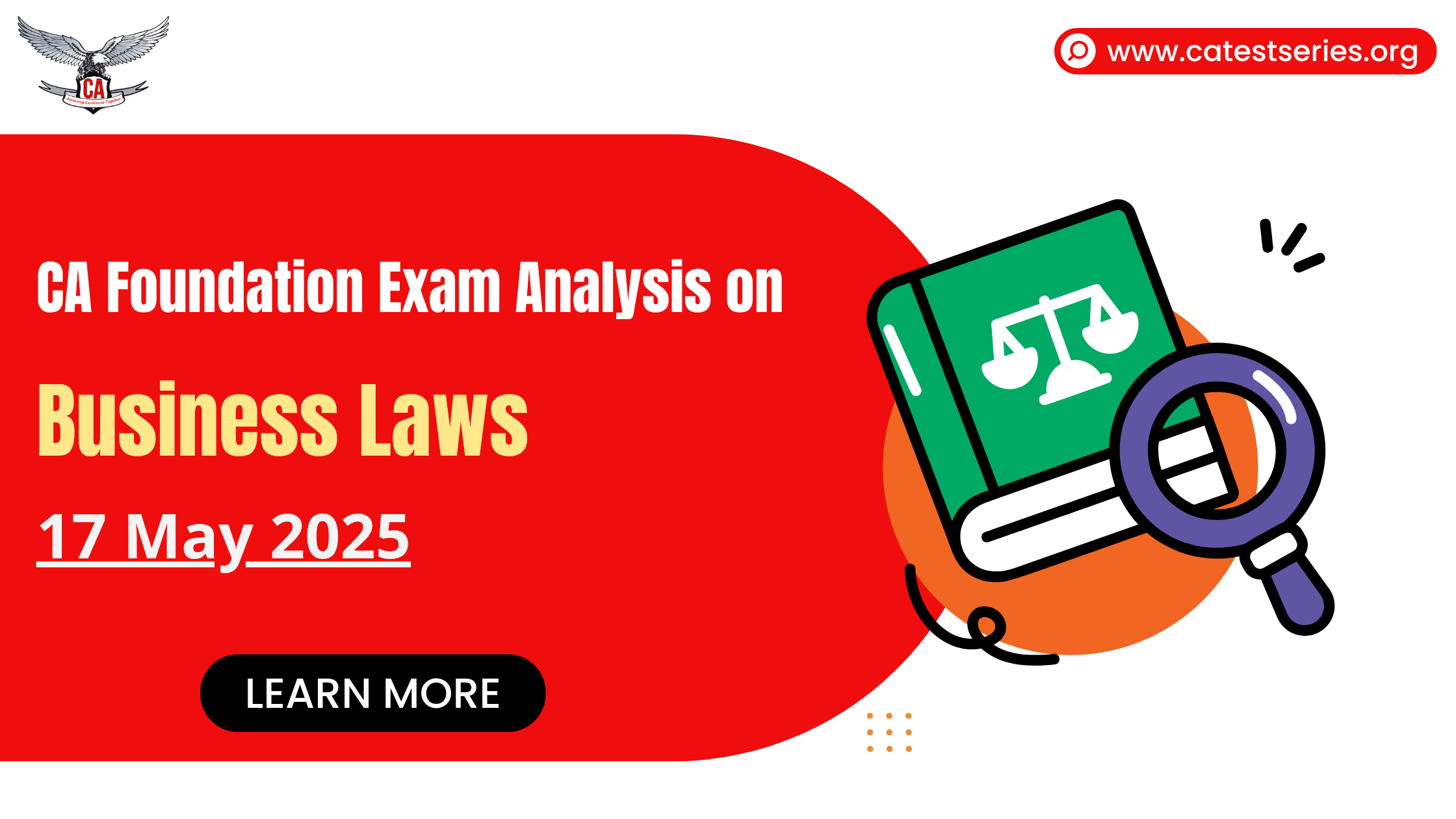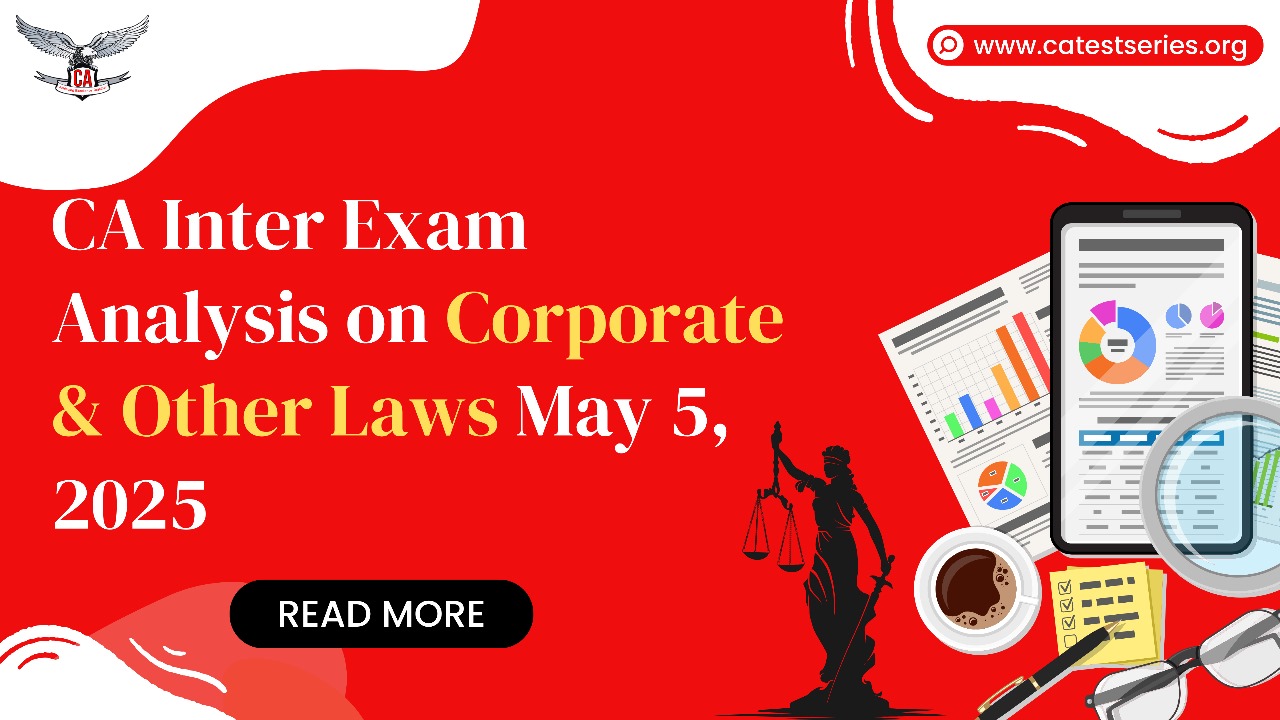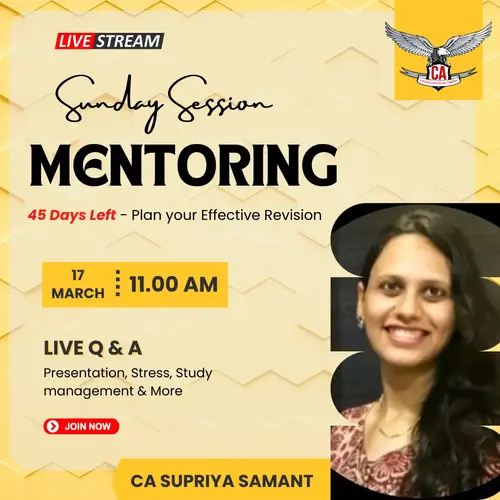CA Foundation Last Date for Registration 2026 ICAI Exams | Registration Fee and Form
As we know, chartered accountancy (CA-Course) is one of the top courses across the world. The Institute of Chartered Accountants of India (ICAI) manages and regulates chartered accountants and CA-Course in India.
The ICAI is constituted by an act of Parliament. There is not any college system under CA education. It is solely controlled by the ICAI. You dont need any commerce background to enroll in it. A foundation exam can be given by anyone. There is a very limited number of CAs in India, due to which there is a huge demand for CAs.
We will discuss here all about the CA course
Who are Chartered Accountants and what do they do?
CAs are members of ICAI. After passing the CA finals exams, a CA student becomes a chartered accountant. They are primarily involved in financial accounting, auditing and assurance, taxation, managing finance, financial advisor, forensic audit, due diligence, investment banking, portfolio management, and other related work.
CA course is mainly divided into the following four stages
- CA–Foundation: -This is an entry-level exam. After passing the foundation, students enter CA. There are four exams at this level. If you are a student of commerce, you can easily clear it with the help of your prior knowledge along with some extra effort.
2. CA–Inter: -Under this level, students gain a theoretical and working knowledge of accounting, taxation, auditing, costing, and financial management. Presently, there are a total of eight exams under the final, which are divided into two groups of four papers each. Students may take the examination for both groups or for any single group.
3. Practical Training under CA: - This is practical training under CA education, which is mandatorily required to be completed by CA students under any CA firm. In this, students acquired practical knowledge of subjects and applied the knowledge acquired in CA-inter.
4. CA Final: - At the final level, students acquired expert knowledge of subjects. Presently, there are also eight exams under final, which are divided into two groups of four papers each. Students may take the examination for both groups or for any single group.
What career options are available after becoming a chartered accountant?
After completing CA you have a number of career options, including:
- Starting your own CA firm to practice as CA; a practicing CA offers a variety of services to its clients, including auditing, taxation, accounting, and other services. There are some provisions under different business laws which provide exclusive power to do an audit of a business entity.
- you can join a CA firm as an employee, With the help of which you can grow in your career. There are a number of CA firms across India. There are four global accounting firms (E & Y, Deloitte, PWC, and KPMG) that are known as the ‘BIG 4". Working with the big four is a dream for many CA aspirants.
- Join Industry/Corporates: There is a high demand for CAs in the corporate world. Every year, many MNCs and large domestic companies hire CAs on attractive salaries. Many big companies like Reliance Industries Limited, HUL, ITC, TATA Consultancy, ICICI, SBI, Bhartiya Airtel & Aditya Birla Sun Life are the highest salary paying companies for CA freshers. CAs are also recruited by public sector undertakings (i.e., government companies).
- You gained solid business knowledge during your CA career, making it simple to start any business. If you have any idea, then you can convert it into a business.
What is the Salary of a CA Fresher?
The average salary of a CA fresher ranges between 6 LPA and 9 LPA, depending on work experience and skills. The package of CA for international posting is up to 70 LPA, and the lowest packages for Cas in small companies are for Rs. 3 LPA. Salary depends totally on academic and technical knowledge as well as experience in articles of a student.
Eligibility for the CA Foundation
Every student of any stream who has passed in the 12th class is eligible to enroll in ca foundation.
Duration of Course
If you clear all levels on your first attempt, it will take 4.5 years to become CA. However, there are many proposed changes in CA education for the benefit of upcoming students, such as a decrease in the duration of practical training and a decrease in the number of subjects at CA Final and Inter Level, as a result of which students will be able to complete CA in 3.5 years.
Fees Structure
The CA course is cost-friendly as compared with other professional courses like MBA, engineering & medical. It does not require much money. Fees charged by ICAI at different levels are included.
| Levels | Fees charged by ICAI (including exams fees) |
| Foundation | 10,500/- |
| CA – Inter | 20,700/- |
| Four-week ITSS training | 13,500/- |
| Four-week Advance ITSS training | 14,500/- |
| CA–Final | 25,300/- |
| TOTAL FEE | 84,500/- |
The above fee does not include of coaching fee if you take coaching it will require an additional cost of around Rs.1.5Lac to 2Lac.
Last Date for registration in the CA Foundation
You can register with ICAI for the foundation exam on or before November 16, 2025 for appearing in January 2026 attempt and for appearing in May 2026 attempt, it will notified to you soon.
How to register for the CA Foundation?
Students can register for CA foundation in online mode without any need of vesting ICAI Bhawan. ICAI has a self-service portal (SSP) where students can register for ca foundation courses. For registration, students need an email id, mobile number& self-certified soft copies of the following documents.
- Passport size photograph of the student
- 12th Class admit card or mark sheet
- 10th Class Marksheet
- Special category certificate (if any) (for SC / ST / OBC students)
- Proof of nationality (for students other than from India)
Syllabus of CA Foundation
There are four subjects at the CA foundation level. Each paper is for 100 marks where Paper 1 & 2 are subjective type papers & papers 3 & 4 are objective type papers.
Paper 1. Principles and Practice of accounting
- This paper covered basic concept concepts of accounting like the meaning of accounting, accounting principles & policies, terminology, accounting standards, accounting process, preparation of bank reconciliation statement, inventory valuation, final accounts of sole proprietors, partnership firms & NPO, the introduction of company accounts.
Paper 2. Business Laws & Business Correspondence and Reporting
- This paper makes you able to, understand significant provisions of different business laws &develop good communication skills. Paper 2 has two section-A “Business law” which is for 60 Marks” it covers topics like the Indian contract act, 1872, Sale of goods act, 1930, Indian partnership act, 1932, limited liability act, 2008, companies act, 2013,&Section-B “Business Correspondence and Reporting” which is for 40 marksit cover topics such as communication skills, writing skills, resume writing, etc.
Paper 3. Business Mathematics, Logical Reasoning, and Statistics
- This paper has the objective of developing a basic understanding of mathematics & logical reasoning. This paper comprises three parts, Part-A“Business Mathematics” cover 40 marks and includes concepts like ratio, equations, and matrices, linear inequalities, time value of money, differential & integral calculus, permutations & combinations, etc., and PART-B “Logical Reasoning” it covers 20 marks includes topic number series, direction tests, blood relations, etc. and PART-C “Statistics” it covers 40 marks includes topic probability, theoretical distribution, correlation & regression, index number & time series, central tendency & dispersion.
Paper 4. Business Economics & Business and Commercial Knowledge
- This paper has the objective of developing an understanding of the basic concept of business economics& common business and commercial concepts. This paper comprises two parts, Part-A “Business Economics” covered 60 marks and includes topics like the introduction of business economics, theory of demand & supply, theory of production & cost, price determination, etc., and PART-B “Business and Commercial Knowledge” it covered 40 marks includes topics like business environment, business organization, government policies for business growth, organizations facilitating business & common business terminologies.
Passing criteria in CA foundation
The student shall be passed, if he secured a minimum of 40% marks in each paper & minimum 50% mark in aggregate in all papers.

